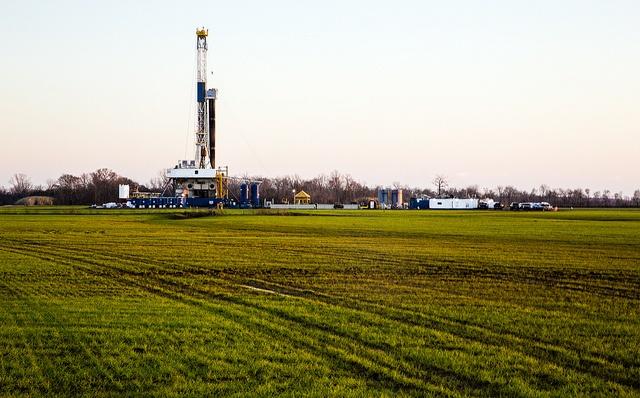
Hydraulic fracturing, better known fracking, is a process used to extract oil and gas from shale by injecting a combination of sand, water and chemicals. It’s a practice that the Natural Resources Defense Council (NRDC) describes as “dirty” in an issue paper on fracking.
Shale gas is big business in the U.S. There are only three countries producing shale gas through fracking on a commercial scale, according to World Watch. The U.S. is at the top spot on the list, followed by Canada and China. Shale gas production accounts for a “significant share” of natural gas production in the U.S. By the end of 2013, shale gas production surpassed the daily output from non-shale wells, becoming the “dominant source.” Although conventional production is declining, the U.S. remains a leading nation in natural gas production because of its shale gas production.
The sheer volume of fracking going on in the U.S. is a concern. NRDC and FracTracker Alliance (FTA) launched an investigation of the publicly provided information on oil and gas company violations. What they found is that state and federal agencies aren’t providing information on violations “in a transparent, easily accessible or comprehensive way.” Information on oil and gas company violations is only publicly accessible in three states (Colorado, Pennsylvania and West Virginia), although 36 states have active oil and gas development. However, no state grants public access to the basic set of data parameters that NRDC and FTA identified as key.
The organizations searched the public data from Colorado, Pennsylvania and West Virginia for the public records of 68 of the largest oil and gas companies in the U.S. At the end of 2011, those 68 companies held leases covering at least 141 million net acres, which is over 6 percent of the country and about the size of California and Florida combined. By analyzing thousands of violations of state law from 2009 to 2013 in the three states, they found that regulators don’t automatically inform either local officials or the public when a company violates the law.
What they also found is that in most cases states don’t notify a landowner when a violation has occurred on their property or notify neighboring landowners when a violation occurs that could affect their property. Many violations aren’t recorded at all for one of two reasons: Regulators aren’t aware, or they choose not to document the violations. That’s an appalling oversight.
Fracking wastewater in California contains high levels of human carcinogen benzene
The Los Angeles Times published an analysis of California fracking wells in February and found high levels of benzene, a human carcinogen. In 2013, the state of California required oil companies to test wastewater extracted from oil wells. Data obtained from the first year of testing found “significant” concentrations of benzene, sometimes at levels thousands of times greater than what state and federal agencies deem safe. On average, benzene levels were 700 times greater than federal standards.
What data is reported to state regulators is likely insufficient and probably doesn’t account for all of the benzene in fracking flowback. “Many operators failed to comply with reporting requirements ... at least 150 reported some results but either failed to test for or provided no data for benzene and a host of other dangerous contaminants,” the Los Angeles Times reported.
Policies are needed to fix the data gap
The NRDC recommends that policies are needed to fix the lack of data reported to state and federal agencies on fracking wells. Policies must ensure that regulators disclose key information to the public, hold violators accountable and keep repeat offenders out of communities.
The lack of data available means that communities are not being protected. It’s time for state and federal agencies to take a good, hard look at what oil and gas companies are not reporting.
Image credit: Daniel Foster

Gina-Marie is a freelance writer and journalist armed with a degree in journalism, and a passion for social justice, including the environment and sustainability. She writes for various websites, and has made the 75+ Environmentalists to Follow list by Mashable.com.














